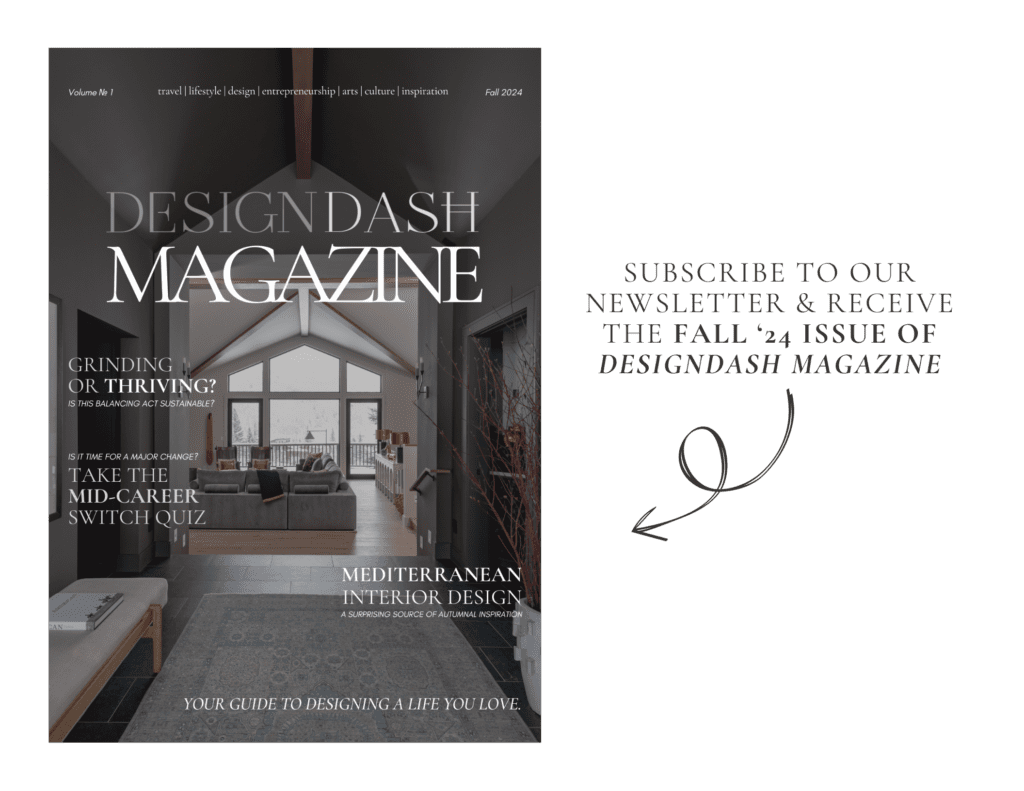

Back to School: Study Tips for Working Moms Pursuing New Careers
Summary
Balancing work, family, and school can be tough for working moms pursuing new careers, but with the right strategies, it’s entirely possible to succeed. This article provides practical study tips, from time management and setting up a study space to using scientifically backed techniques like spaced repetition and active recall. It also emphasizes the importance of staying motivated, practicing self-care, and seeking support to maintain mental health throughout the journey.
Reflection Questions
- How can I better integrate study sessions into my current routine without feeling overwhelmed?
- What are some small achievements I can celebrate to keep my motivation high during my educational journey?
- Who in my life can I reach out to for support when I’m feeling stressed or overwhelmed with balancing school, work, and family?
Journal Prompt
Reflect on the reasons you decided to pursue further education. Write about your long-term career goals and how achieving them will impact your life and your family’s future. Consider what steps you can take today to move closer to these goals and how you will celebrate your progress along the way.
We know how hard it is for adult students to return to the classroom. Balancing work, family, and school can feel like juggling flaming torches! With more and more working moms heading back to school to chase new career dreams, you’re definitely not alone in this adventure. In this article, we share practical tips to help you ace your exams and retain information before launching your mid-career switch. From time management tools to staying motivated, these strategies will ensure you thrive in the classroom and at home.
But First…Let’s Prep for Success!


Before you dive into your course material and foster effective study habits, assess how you already spend your time and where there are gaps to fill with study sessions. Start by doing a simple time audit—just jot down everything you do in a typical week.
This will help you spot any hidden time slots that could be perfect for studying. Once you know where your time is going, you can set realistic goals that balance school, work, and life without overwhelming yourself. Remember, it’s all about finding a rhythm that works for you.
Build a Support System


You don’t have to do this alone! Involve your family in your educational journey by sharing your goals and discussing how they can support you. Sit down with your partner and kids to talk about schedules and expectations so everyone’s on the same page.
Remember to explore childcare options or community resources that can help lighten the load. Research a study group in your area filled with other students your age. A strong support system can make all the difference as you prioritize your own learning.
Set Boundaries
Setting boundaries is key to keeping your sanity while juggling multiple roles. Clearly define when it’s time for work, study, and family, and stick to those boundaries as much as possible.
Let your family and colleagues know your study schedule so they can respect your time and give you the space you need. And remember, it’s okay to say no to commitments that aren’t essential—you’ve got enough on your plate! By protecting your time, you’ll be better able to focus on what really matters.
Set Up a Study Environment


Creating a dedicated space at home for each study session can set you up for success right from the start. Find a quiet corner where you can focus, free from distractions. Keep your materials and supplies organized so you don’t waste time searching for things when you’re ready to hit the books.
And make sure your workspace is comfortable and ergonomic—after all, you’ll be spending a lot of time there! A well-designed study area can help you stay productive and motivated throughout your academic journey.
Develop Effective Time Management Strategies
Grab a planner or digital tool to map out your study sessions and ensure they fit smoothly into your busy day. Focus on what’s most important by prioritizing tasks based on deadlines and their impact on your goals. And don’t let big assignments intimidate you—break them down into bite-sized chunks that you can tackle one at a time. This way, you’ll stay on track without feeling overwhelmed.
Now, you’re ready to explore some of our favorite study strategies! Let’s get into it.
10 Tried and True Study Techniques with Scientific Backing
#1 Spaced Repetition


Spaced repetition (sometimes called Distributed Practice) involves spreading out your study sessions over time rather than cramming all your learning into one sitting. The point of spaced repetition is to help you retain information over the long haul by revisiting material at intervals just before you’re likely to forget it. Research shows that this method strengthens your memory by aligning with the brain’s natural forgetting curve, making it easier to retain information for longer periods.
Study Tip: Use tools like Anki or Quizlet to schedule spaced review sessions.
#2 Active Recall


Active recall is next on our list of study methods. With this technique, you’ll actively try to recall information from memory rather than passively reviewing notes or textbooks. The point of active recall is to enhance your memory by directly challenging it.
Scientific studies have demonstrated that this method is more effective for long-term retention than simply re-reading material. By making your brain work to retrieve information, you strengthen your ability to remember it later.
Study Tip: After reading a section of your textbook, close it and try to write down or explain the main points from memory.
#3 The Feynman Technique


The Feynman Technique involves learning by teaching, where you explain a concept in simple terms as if you were teaching someone else. The point of this technique is to deepen your basic understanding of a topic by forcing you to organize your thoughts clearly and simplify complex ideas. Research supports that teaching others not only reinforces your knowledge but also highlights areas where your understanding may be lacking, allowing you to fill in those gaps.
Study Tip: Explain a topic out loud in your own words as if you were teaching a friend or child. Simplify the concept until you fully understand it.
#4 Interleaved Practice


Interleaved practice is the method of mixing different subjects or topics within a single study session, rather than focusing on just one at a time. The point of interleaved practice is to improve your learning and study skills by challenging your brain to make connections between different concepts. Research shows that while this method may feel more difficult, it actually boosts retention and helps you apply what you’ve learned in various contexts.
Study Tip: Alternate between different subjects or topics in your study sessions instead of sticking to just one.
Fuel your creative fire & be a part of a supportive community that values how you love to live.
subscribe to our newsletter
*please check your Spam folder for the latest DesignDash Magazine issue immediately after subscription


#5 Pomodoro Technique


The Pomodoro Technique is a time management method that involves working in focused 25-minute intervals followed by a 5-minute break. The point of this technique is to take advantage of the brain’s ability to study effectively for short bursts of time, which helps prevent burnout and boosts productivity. Scientific research shows that these short, structured work sessions can improve focus and make tasks feel more manageable.
Study Tip: Set a timer for 25 minutes, focus on one task, then take a 5-minute break. After four sessions, take a longer break.
#6 Dual Coding


Dual coding involves combining verbal information with visual elements like diagrams, charts, or illustrations to reinforce learning. The point of this technique is to enhance understanding and retention by engaging multiple pathways in the brain. According to dual coding theory, when you pair words with visuals, your brain processes key points more effectively, making it easier to recall later.
Study Tip: While studying, create diagrams, mind maps, or infographics alongside your notes.
#7 Self-Testing


Self-testing is the practice of testing yourself on the material you’re studying to gauge your understanding and retention. The point of self-testing is to improve memory recall and identify areas that need more attention. Scientific studies have shown that self-testing is one of the most effective ways to reinforce learning, as it forces your brain to retrieve information, strengthening your ability to remember it.
Study Tip: Create flashcards, take practice quizzes, or write down potential test questions and try to answer them without looking at your notes.
#8 Elaborative Interrogation


Elaborative interrogation involves asking yourself “why” questions as you study to deepen your understanding of the material. The point of this technique is to enhance comprehension and retention by making connections between new information and what you already know. Research supports that asking “why” questions helps in understanding and remembering new concepts by encouraging you to think critically and make meaningful associations.
Study Tip: After learning a new concept, ask yourself why it works the way it does and how it relates to what you already know.
#9 Chunking


Chunking is the process of breaking down large pieces of information into smaller, more manageable units. The point of chunking is to make complex information easier to remember by organizing it into groups. Scientific research shows that chunking leverages the brain’s natural tendency to categorize and organize information, which can significantly improve memory recall.
Study Tip: Organize your study material into related sections or chunks, focusing on mastering one chunk before moving to the next.
#10 Mind Mapping


Mind mapping involves creating a visual representation of concepts and their relationships to each other. The point of mind mapping is to help you organize and visualize information in a way that makes it easier to understand and recall. Research supports mind mapping as an effective tool for structuring information, allowing you to see the big picture and how different ideas connect.
Study Tip: Start with a central idea in the middle of a page and branch out with related concepts, connecting them with lines and keywords.
Final Thoughts: Maintaining Motivation and Mental Health While Pursuing a New Degree


It’s easy to get lost in the day-to-day grind, so make it a habit to regularly revisit why you decided to pursue further education in the first place. Remind yourself of your dreams and what you’re working toward—whether it’s advancing your career, achieving personal growth, or setting an example for your kids. Break down your journey into short-term and long-term goals, and don’t forget to celebrate the small wins along the way. Recognizing your progress, no matter how small, can keep your motivation strong and your eyes on the prize.
Taking care of yourself is just as important as hitting the books. Make sure you schedule regular time for relaxation and mental health breaks to recharge. Incorporating physical activity into your routine, eating well, and getting enough sleep are all key to maintaining energy and focus. When stress builds up, practice stress-relief techniques like meditation or deep breathing. Remember, you can’t pour from an empty cup—taking care of yourself ensures you have the energy and mindset to keep moving forward.
You don’t have to go through this journey alone! If you ever feel overwhelmed, don’t hesitate to reach out for support. Academic advisors or counselors are there to help guide you, and connecting with other working moms in similar situations can provide mutual support and encouragement. Don’t be afraid to lean on your family, friends, or mentors when you need a helping hand. Asking for help is a sign of strength, not weakness, and it can make all the difference in keeping you on track toward your goals.








